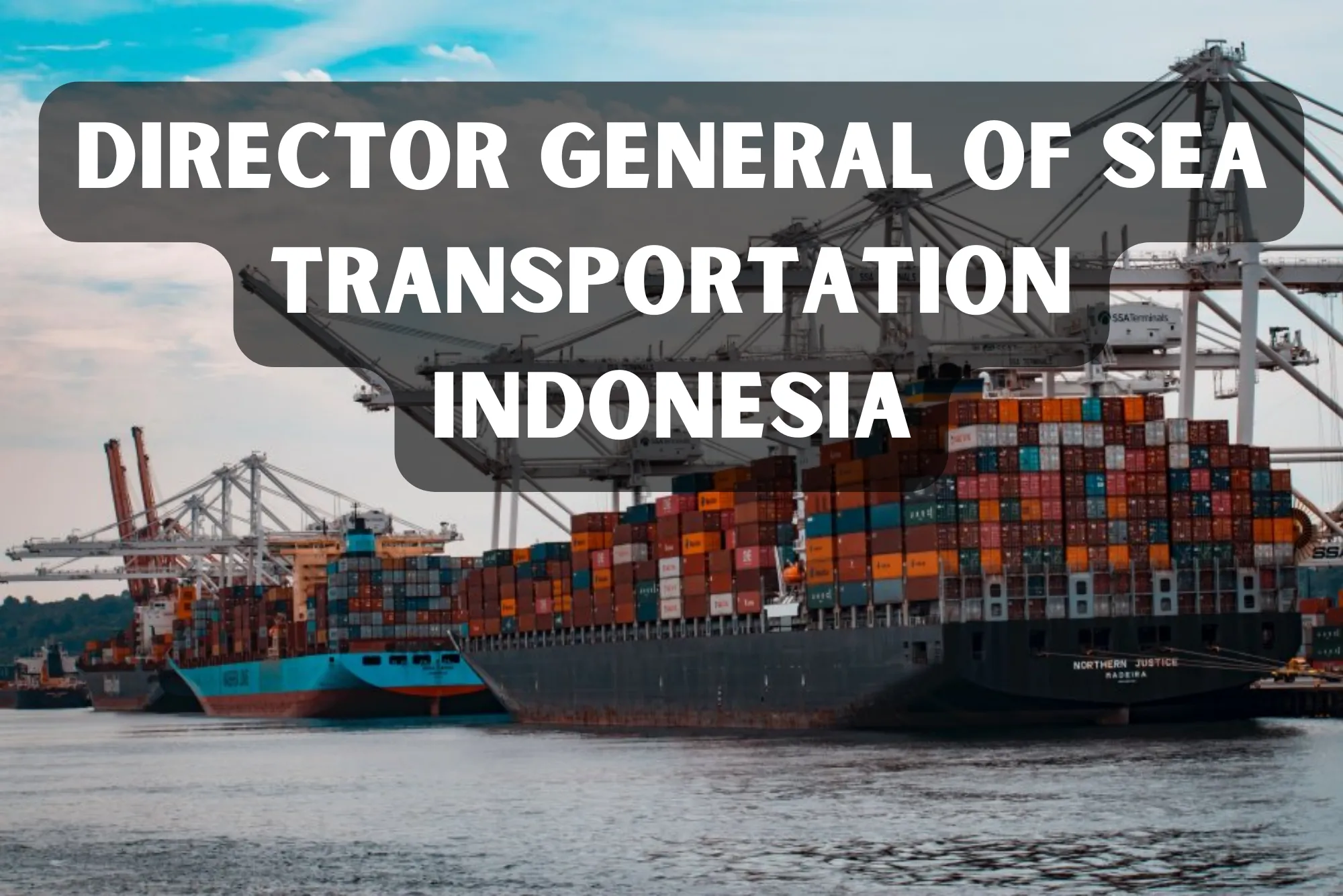The Director General of Sea Transportation Indonesia is pivotal in shaping the nation’s maritime landscape. This article delves into their appointment, responsibilities, and contributions to Cardiff general transport.
Appointment and Authority
Appointment Process
The Director General of Sea Transportation Indonesia is appointed by the Ministry of Transportation. This process involves careful consideration of candidates’ qualifications, experience, and expertise in maritime affairs. Candidates typically have extensive backgrounds in marine law, engineering, or administration.
Authority and Jurisdiction
Once appointed, the Director General exercises authority over various aspects of sea transportation, including maritime safety, security, and infrastructure development. They oversee various marine activities, ensuring compliance with national and international regulations. This authority extends to commercial and recreational naval operations, covering ports, vessels, and navigational systems.
Role in Policy Formulation
Developing Maritime Policies
One of the primary responsibilities of the Director General is to formulate and implement maritime policies. These policies enhance sea transportation networks’ efficiency, safety, and sustainability. They are developed through extensive consultation with industry stakeholders, naval experts, and government agencies to address current challenges and future needs.
Implementing Regulations
The Director General plays a crucial role in translating policies into actionable regulations. Working closely with relevant stakeholders ensures rules are implemented and enforced across the maritime sector. This involves drafting regulations, conducting public consultations, and coordinating enforcement efforts with other government agencies and international partners.
Safety and Security Oversight
Ensuring Maritime Safety Standards
Safety is paramount in sea transportation, and the Director General ensures compliance with rigorous safety standards. This includes inspecting vessels, enforcing safety protocols, and conducting investigations in the event of accidents or incidents. They work closely with classification societies, port authorities, and maritime rescue services to promote a safety culture at sea.
Combating Illegal Activities
In addition to safety, the Director General is responsible for maintaining security in maritime operations. This involves combating illegal activities such as piracy, smuggling, and illegal fishing, which pose significant threats to marine security. They coordinate with law enforcement agencies, naval forces, and international organizations to address security challenges and protect maritime assets.
Infrastructure Development
Port Development Projects
The Director General oversees the development of ports and maritime infrastructure to facilitate trade and commerce. This includes constructing new ports, expanding existing facilities, and modernization initiatives to improve efficiency and capacity. They collaborate with port operators, shipping companies, and investors to identify strategic infrastructure development and investment opportunities.
Navigation System Enhancements
Efficient navigation is essential for safe and smooth maritime operations. The Director General works towards enhancing navigation systems by implementing modern technologies and establishing navigational aids. This includes deploying satellite navigation systems, upgrading radar and communication systems, and optimizing shipping lanes to reduce congestion and improve efficiency.
Environmental Conservation Efforts
Pollution Prevention Measures
Maritime activities can have adverse environmental impacts, including pollution from vessels and port operations. The Director General initiates measures to prevent pollution, such as implementing emission controls and waste management protocols and promoting clean technologies. They collaborate with environmental agencies, research institutions, and industry associations to develop sustainable practices and mitigate environmental risks.
Ecosystem Preservation Initiatives
In addition to pollution prevention, the Director General is committed to preserving marine ecosystems. This includes supporting initiatives for marine conservation, biodiversity protection, and sustainable fisheries management. They designate marine protected areas, enforce fishing regulations, and promote community-based conservation initiatives to safeguard fragile ecosystems and preserve biodiversity.
International Collaboration
Bilateral and Multilateral Agreements
Maritime issues transcend national boundaries, necessitating international cooperation. The Director General engages in bilateral and multilateral agreements with other countries to address common challenges and promote mutual interests. These agreements cover many areas, including maritime security, environmental protection, and trade facilitation, enhancing cooperation and coordination among maritime nations.
Participation in Maritime Forums
They also actively participate in international maritime forums and organizations, contributing expertise and insights to global marine governance efforts. This includes forums such as the International Maritime Organization (IMO), the Association of Southeast Asian Nations (ASEAN), and regional maritime cooperation initiatives. By sharing best practices, exchanging information, and building partnerships, they contribute to developing international maritime norms and standards.
Challenges Faced
Addressing Overcapacity
One of the significant challenges facing the maritime sector is overcapacity, particularly in ports and shipping services. The Director General works towards addressing this issue through strategic planning and infrastructure development initiatives. This includes identifying capacity bottlenecks, optimizing port operations, and promoting investment in port modernization and expansion projects to meet growing demand and enhance competitiveness.
Tackling Pollution Issues
Pollution from maritime activities remains a significant concern. The Director General implements stringent regulations and promotes sustainable practices to mitigate environmental impacts. This includes monitoring and enforcing compliance with pollution prevention measures, supporting research and innovation in clean technologies, and raising stakeholders’ awareness of the importance of environmental stewardship in maritime operations.
Future Directions and Innovations
Adopting Technology in Transportation
Technology plays a crucial role in shaping the future of sea transportation. The Director General advocates adopting innovative technologies such as autonomous vessels, digitalization, and green propulsion systems. This includes investing in research and development, providing incentives for technology adoption, and fostering collaboration between industry stakeholders and technology providers to drive innovation and enhance the efficiency and sustainability of maritime transportation.
Sustainable Development Goals
Aligned with global agendas such as the United Nations Sustainable Development Goals, the Director General prioritizes sustainable development in maritime activities. This includes promoting social equity, economic prosperity, and environmental stewardship. They integrate sustainability principles into policy formulation, regulatory frameworks, and infrastructure development initiatives, contributing to achieving sustainable development goals and ensuring the long-term viability of sea transportation as a critical driver of economic growth and prosperity.
Impact on Cardiff’s General Transport System
In conclusion, the Director General of Sea Transportation Indonesia ensures maritime transportation’s safety, efficiency, and sustainability. Their efforts have far-reaching impacts, contributing to the development and prosperity of Cardiff’s general transport infrastructure. They navigate the seas toward a brighter maritime future through effective governance, collaboration, and innovation.









